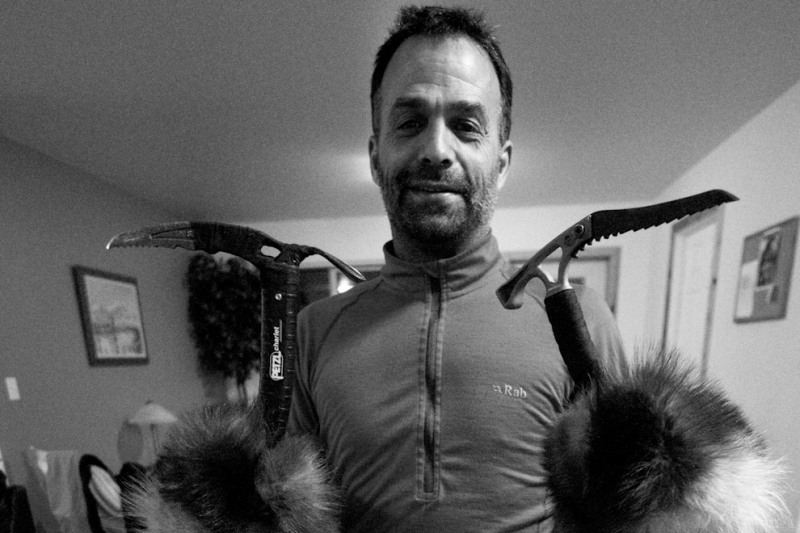Lonnie Dupre Begins Third Attempt to Summit Denali in January and Collect Data for ASC
As a contributor toASC’s microbe study, Dupre will provide small microbe samples to principal investigator Dr. Dragos George Zaharescu, a post-doctoral fellow at the University of Arizona and the Biosphere 2 project. Zaharescu is compiling samples from the world’s most remote alpine environments to study the microorganisms that live there.
Zaharescu hopes to gain insight into the biogeochemical weathering process of bedrock and how it contributes to nutrient cycling. “We want to know how microbes modify the geology they’re living on to produce nutrients” Zaharescu continues, “These microbes are extracting the nutrients out of bedrock, and we try to understand the data to get a global picture of life in terms of nutrient production. We are studying how climate change influences these processes on a massive scale by working with ASC athletes volunteering around the world.”
“(ASC) was a link that wasn’t there and it’s important because a lot of these cutting edge adventurers are going to places that are so hard to access for scientists that are expensive. Why not use the hands of adventurers and explorers to help scientists to collect data?”
On Dupre’s previous attempts to summit Denali in the coldest month of the year, he was forced to bivouac in a 4-foot by 4-foot snow cave at 14,200 feet for seven days. During his bivy last year, NOAA Aviation recorded 97 mph wind gusts that brought the wind chill to a deadly -75 degrees Fahrenheit. With hopes of a weather break to make a push to the final camp, Dupre was forced to retreat off the mountain for the second time.
Ready for round three, Dupre has been training in Homer, Alaska, and was recently acclimatizing in the Rockies in Colorado at 14,000 feet. After Christmas, Dupre flew into Talkeetna, Alaska to gear up for the attempt. The ascent will officially begin on Kahiltna Glacier at 7,200 feet as soon as the team has a clear weather window to get on the mountain.
Dupre is excited to be working through ASC, citing his past difficulties sourcing scientists to develop programs for his numerous expeditions. “It (ASC) was a link that wasn’t there and it’s important because a lot of these cutting edge adventurers are going to places that are so hard to access for scientists that are expensive,” Dupre said. “Why not use the hands of adventurers and explorers to help scientists to collect data?”
To date ASC, has partnered more than 1,000 athletes with more than 110 researchers from around the world. You can learn more about ASC’smicrobe study and the many other ongoing projects on the website. Also, you can follow Dupre’s record breaking attempt on ASC’s blog as well as through facebook and twitter.

